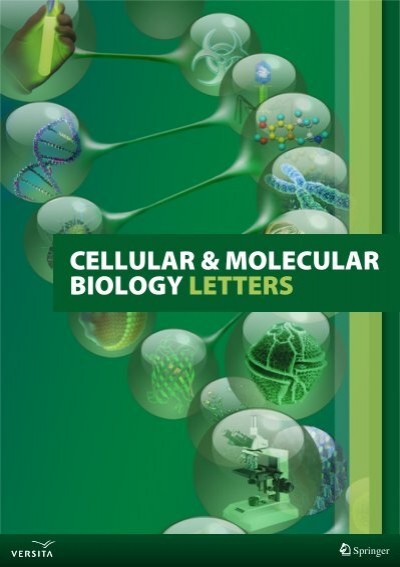Identification of zinc finger MIZ-type containing 2 as an oncoprotein enhancing NAD-dependent protein deacetylase sirtuin-1 deacetylase activity to regulate Wnt and Hippo pathways in non-small-cell lung cancer
IF 9.2
1区 生物学
Q1 BIOCHEMISTRY & MOLECULAR BIOLOGY
引用次数: 0
Abstract
Zinc finger MIZ-type containing 2 (ZMIZ2) can function as a coactivator and participate in the progression of certain malignant tumors; however, its expression and underlying molecular mechanism in non-small-cell lung cancer (NSCLC) remains unknown. In this study, we aim to analyze the expression of ZMIZ2 and its tumorigenic function in NSCLC, identifying its related factors. ZMIZ2 expression in NSCLC tissue samples and cell lines was examined using immunohistochemistry and western blotting; its biological role was investigated using in vivo and in vitro assays. The association between ZMIZ2 and NAD-dependent protein deacetylase sirtuin-1 (SIRT1) was demonstrated using mass spectrometry and immunoprecipitation experiments. Kyoto Encyclopedia of Genes and Genomes Pathway (KEGG)-based enrichment analysis, luciferase reporter assay, and real-time quantitative polymerase chain reaction (RT–qPCR) were conducted to verify the impact of ZMIZ2–SIRT1 combination on Hippo/Wnt pathways. ZMIZ2 was highly expressed in NSCLC and positively associated with advanced pTNM staging, lymph node metastasis, and poor overall survival. Functional experiments revealed that ZMIZ2 promotes the proliferation, migration, and invasiveness of lung cancer cells—establishing its role as a promoter of oncogenes. Molecular mechanism studies identified SIRT1 as an assisted key factor interacting with ZMIZ2. KEGG enrichment analysis revealed that ZMIZ2 is closely related to Wnt/Hippo pathways; ZMIZ2–SIRT1 interaction enhanced SIRT1 deacetylase activity. Direct downregulation of intranuclear β-catenin and yes-associated protein (YAP) acetylation levels occurred independently of upstream proteins in Wnt/Hippo pathways; transcriptional activities of β-catenin-transcription factor 4 (TCF4) and YAP–TEA domain family transcription factors (TEADs) were amplified. ZMIZ2 promotes the malignant phenotype of lung cancer by regulating Wnt/Hippo pathways through SIRT1, providing an experimental basis for discovering novel biomarkers and developing tumor-targeted drugs.鉴定含锌手指 MIZ 型 2 是一种增强 NAD 依赖性蛋白去乙酰化酶 sirtuin-1 去乙酰化酶活性的肿瘤蛋白,可调控非小细胞肺癌中的 Wnt 和 Hippo 通路
锌指MIZ型含2(ZMIZ2)可作为辅激活因子参与某些恶性肿瘤的进展,但其在非小细胞肺癌(NSCLC)中的表达及其潜在的分子机制仍不清楚。本研究旨在分析ZMIZ2在NSCLC中的表达及其致瘤功能,并确定其相关因素。研究采用免疫组化和免疫印迹法检测了ZMIZ2在NSCLC组织样本和细胞系中的表达,并采用体内和体外实验研究了其生物学作用。质谱分析和免疫沉淀实验证明了ZMIZ2与NAD依赖性蛋白去乙酰化酶sirtuin-1(SIRT1)之间的关联。基于京都基因组百科全书途径(KEGG)的富集分析、荧光素酶报告实验和实时定量聚合酶链反应(RT-qPCR)验证了ZMIZ2-SIRT1组合对Hippo/Wnt通路的影响。ZMIZ2在NSCLC中高表达,与晚期pTNM分期、淋巴结转移和总生存率低呈正相关。功能实验显示,ZMIZ2 能促进肺癌细胞的增殖、迁移和侵袭性,从而确立了其作为癌基因启动子的作用。分子机制研究发现,SIRT1是与ZMIZ2相互作用的辅助关键因子。KEGG富集分析显示,ZMIZ2与Wnt/Hippo通路密切相关;ZMIZ2与SIRT1的相互作用增强了SIRT1去乙酰化酶的活性。核内β-catenin和YAP乙酰化水平的直接下调与Wnt/Hippo通路中的上游蛋白无关;β-catenin-转录因子4(TCF4)和YAP-TEA结构域家族转录因子(TEADs)的转录活性被放大。ZMIZ2通过SIRT1调控Wnt/Hippo通路,促进肺癌恶性表型的形成,为发现新型生物标志物和开发肿瘤靶向药物提供了实验基础。
本文章由计算机程序翻译,如有差异,请以英文原文为准。
求助全文
约1分钟内获得全文
求助全文
来源期刊

Cellular & Molecular Biology Letters
生物-生化与分子生物学
CiteScore
11.60
自引率
13.30%
发文量
101
审稿时长
3 months
期刊介绍:
Cellular & Molecular Biology Letters is an international journal dedicated to the dissemination of fundamental knowledge in all areas of cellular and molecular biology, cancer cell biology, and certain aspects of biochemistry, biophysics and biotechnology.
 求助内容:
求助内容: 应助结果提醒方式:
应助结果提醒方式:


